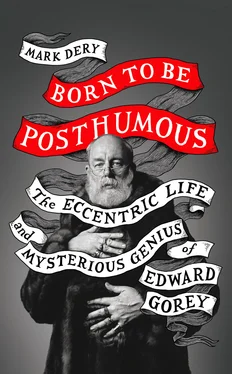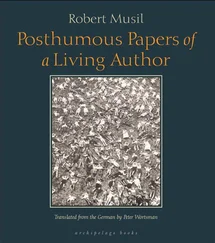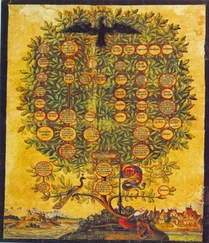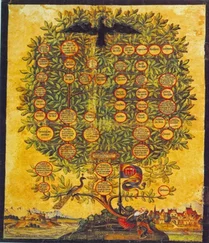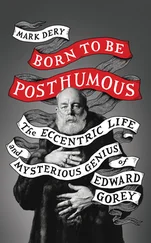Returning to Chicago, Gorey landed an afternoon job at an antiquarian bookshop specializing in railroadiana and a morning job at another bookstore. “I worked in a couple of bookstores, and as a consequence, spent all my salary on books; saw no one at all, and mentally stagnated on the beach on Sundays,” he wrote Brandt. “I did manage to drag myself to hear a lot of chamber music (your influence), usually on stifling hot evenings when one was flooded in one’s own perspiration. However, it all added to the intensity of the experience, or something.” 22
In May, Gorey notified Harvard of his intent to register that fall, taking the college up on its long-deferred offer and the scholarship that went with it, supplemented by the GI Bill of Rights. The flood of veterans swelled the class of 1950 to 1,645, the biggest in Harvard’s history; more than half the incoming students were former servicemen, their entrée to one of the nation’s most prestigious Ivies made possible by the GI Bill.
Asked, on his Veteran Application for Rooms, about his preference in roommates, Gorey said he’d rather share a room with “someone from New England or New York, not any younger than I am, the same religion if possible”—Episcopal, he says, elsewhere on the questionnaire—and “with interests along the lines I have indicated,” namely, art and symphonic music and of course reading (“Mostly French and English moderns, both poetry and fiction”). 23
Setting aside his uncharacteristic (and unconvincing) partiality for a fellow Episcopalian—irreligious Ted doing his best to sound like a Harvard man rather than the bohemian weirdo he was?—his response is revealing. His bias in favor of East Coasters invites the perception that he wants to put some distance between himself and the Grant Wood provincialism of the Midwest. He’s embarking on that quintessentially American rite of passage: pulling up stakes and moving far from home, where nobody knows you and you’re free to flaunt your true self or, for that matter, try on new selves.
But if Gorey’s departure for Harvard, at twenty-one, turned the page on his hometown days—he would spend the rest of his life on the East Coast, returning to Chicago for holidays, then infrequently, then hardly ever—the character, culture, and landscape of the city he grew up in left their stamp on him, if you knew where to look. Most obviously, there’s his accent, softened by long years on the East Coast and crossed with the theatrical, ironizing lilt of stereotypical gay speech, but still a dead giveaway. We hear Chicago in Gorey’s elongated vowels, especially in his long, flat a , which sounds like the ea in yeah : in recorded interviews, when he says “back” and “bad” and “happened,” they come out “be- yeah -k” and “be- yeah -d” and “he- yeah -pened.”
More profoundly, there’s his impatience with phoniness and pomposity, a trait native to the industrious, pragmatic city of immigrants he grew up in. Chicago is famously a working-class, beer-and-kielbasa town, staccato in speech, blunt in expression, unpretentious to the point of pugnacity—“perhaps the most typically American place in America,” thought the historian James Bryce. 24Being “regular” is a cardinal virtue.
Of course, Gorey was the least regular guy imaginable, an unapologetic oddity who thought of himself as “a category of one.” 25Still, Larry Osgood, who was in Gorey’s class at Harvard, recalls their classmate George Montgomery saying something about Ted that Osgood “took as really odd at the time, but was really very, very insightful. He said, ‘Ted’s much more normal than the rest of you guys.’” The clique in question was largely gay, and some of its members were, in the parlance of the time, flamboyant in the extreme. “I thought, That’s odd . But there was a level in Ted’s personality, as outrageous as it was, of solid, middle-class values.” Osgood agrees with Freddy English’s characterization of Gorey as “a nice Midwestern boy” in bohemian drag. “The curious thing about Ted in those days, and probably always,” he says, “was that his behavior, tone of voice, gestures, were characteristically queeny, no question about it, but at the core of his personality, he wasn’t a queeny person at all. So except for this bizarre direction he went in in his work, he was a very middle-class, moralistic person.”
Gorey once claimed, with his usual flair for the dramatic, that he was “probably fully formed” by the time he arrived at Harvard. 26No doubt the essential elements of his style and sensibility were intact, many of them already jigsawed into place, but the Ted we know wasn’t quite complete when he walked through the gates of Harvard Yard the week of September 16, 1946.
He would prove a lackadaisical French major, later recalling, “I bounced from the dean’s list to probation and back again.” 27When it came to his extracurricular passions, however, he was an avid student, devouring everything by his latest literary infatuations, going to art films and the ballet, trying his hand at limericks and stories, and drawing constantly (little men in raccoon coats proliferate in the margins of his study notes). For the next four years, he’d be zealous in his true course of study: Becoming Gorey.
CHAPTER 3 CHAPTER 3: “Terribly Intellectual and Avant-Garde and All That Jazz”: Harvard, 1946–50 CHAPTER 4: Sacred Monsters: Cambridge, 1950–53 CHAPTER 5: “Like a Captive Balloon, Motionless Between Sky and Earth”: New York, 1953 CHAPTER 6: Hobbies Odd—Ballet, the Gotham Book Mart, Silent Film, Feuillade: 1953 CHAPTER 7: Épater le Bourgeois: 1954–58 CHAPTER 8: “Working Perversely to Please Himself”: 1959–63 CHAPTER 9: Nursery Crimes— The Gashlycrumb Tinies and Other Outrages: 1963 CHAPTER 10: Worshipping in Balanchine’s Temple: 1964–67 CHAPTER 11: Mail Bonding—Collaborations: 1967–72 CHAPTER 12: Dracula: 1973–78 CHAPTER 13: Mystery!: 1979–85 CHAPTER 14: Strawberry Lane Forever: Cape Cod, 1985–2000 CHAPTER 15: Flapping Ankles, Crazed Teacups, and Other Entertainments CHAPTER 16: “Awake in the Dark of Night Thinking Gorey Thoughts” CHAPTER 17: The Curtain Falls Notes A Note on Sources A Gorey Bibliography Index Acknowledgments About the Author Also by Mark Dery About the Publisher
“TERRIBLY INTELLECTUAL AND AVANT-GARDE AND ALL THAT JAZZ” CHAPTER 3: “Terribly Intellectual and Avant-Garde and All That Jazz”: Harvard, 1946–50 CHAPTER 4: Sacred Monsters: Cambridge, 1950–53 CHAPTER 5: “Like a Captive Balloon, Motionless Between Sky and Earth”: New York, 1953 CHAPTER 6: Hobbies Odd—Ballet, the Gotham Book Mart, Silent Film, Feuillade: 1953 CHAPTER 7: Épater le Bourgeois: 1954–58 CHAPTER 8: “Working Perversely to Please Himself”: 1959–63 CHAPTER 9: Nursery Crimes— The Gashlycrumb Tinies and Other Outrages: 1963 CHAPTER 10: Worshipping in Balanchine’s Temple: 1964–67 CHAPTER 11: Mail Bonding—Collaborations: 1967–72 CHAPTER 12: Dracula: 1973–78 CHAPTER 13: Mystery!: 1979–85 CHAPTER 14: Strawberry Lane Forever: Cape Cod, 1985–2000 CHAPTER 15: Flapping Ankles, Crazed Teacups, and Other Entertainments CHAPTER 16: “Awake in the Dark of Night Thinking Gorey Thoughts” CHAPTER 17: The Curtain Falls Notes A Note on Sources A Gorey Bibliography Index Acknowledgments About the Author Also by Mark Dery About the Publisher
Harvard, 1946–50
Gorey, like all incoming freshmen, had been assigned to one of the residence halls around Harvard Yard. Mower, *a small red-brick building completed in 1925, has its own courtyard, a patch of tree-shaded green that gives it a secluded feel. Gorey’s new home was suite B-12, on the ground floor, a no-frills affair with two bedrooms giving onto a common study room with three desks and a fireplace. His roommates were Alan Lindsay and Bruce Martin McIntyre, about whom we know zilch, as he would say.
Читать дальше
